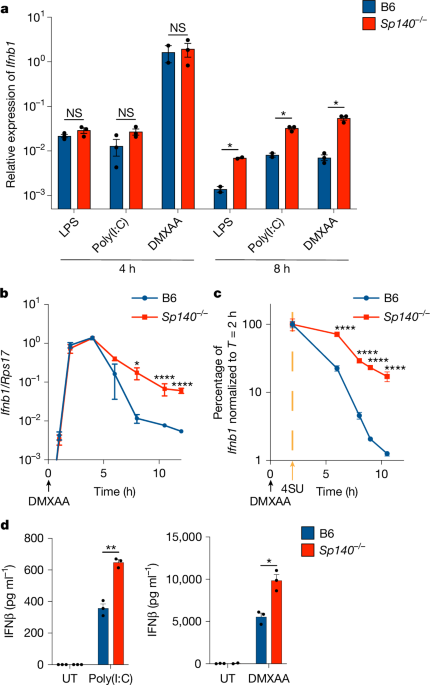
"Mice used in experiments were bred in-house, genotyped for specific traits, and maintained in regulated conditions for optimal health and controlled research outcomes."
"CRISPR-Cas9 techniques were employed for the generation of various mouse models, indicating advanced genetic manipulation in studying specific genetic traits and functions."
The article discusses the breeding and maintenance of various genetically modified mouse models used for research at the University of California Berkeley, under strict regulatory compliance. Mice were housed in specific-pathogen-free conditions and provided a controlled diet. Techniques such as CRISPR-Cas9 were utilized for genetic modifications, demonstrating a commitment to detailed scientific methodologies in the creation of various mouse strains including Sp140−/− and HA-Sp140 knock-in models. Detailed genotyping processes were also outlined to ensure accuracy in genetic studies and experiments.
Read at Nature
Unable to calculate read time
Collection
[
|
...
]